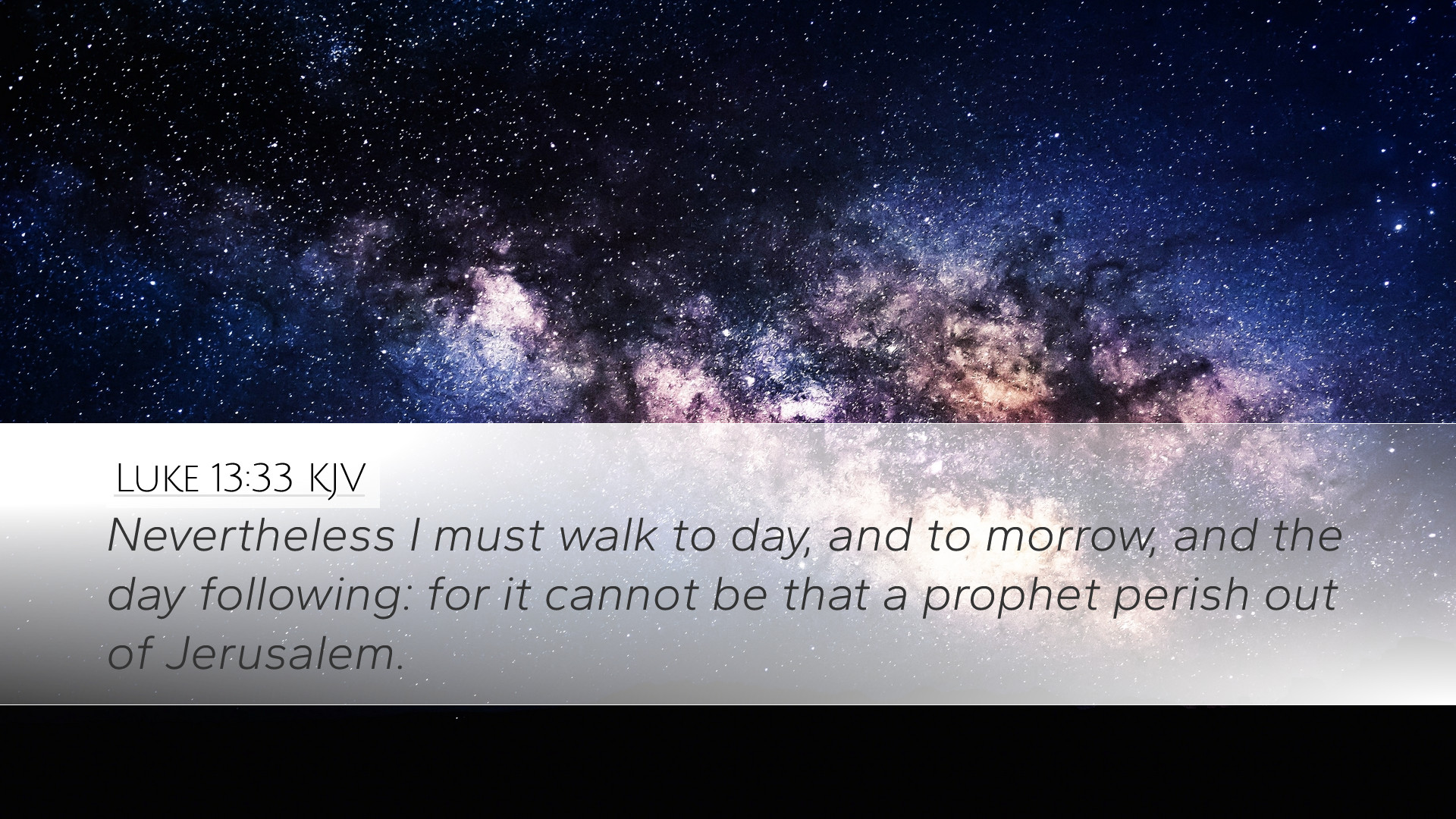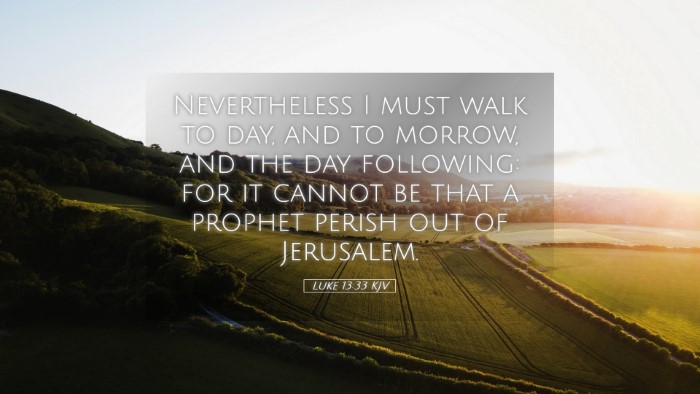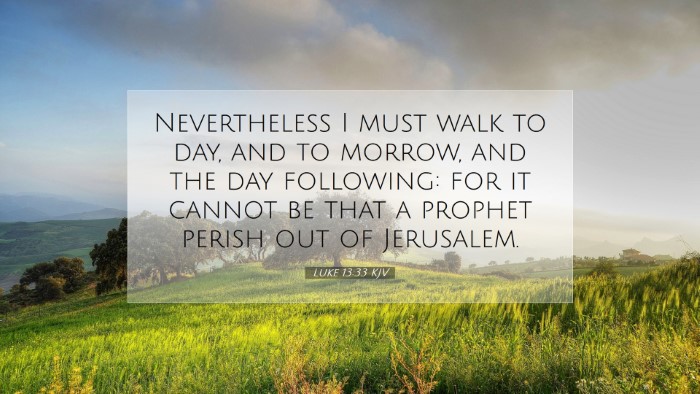Commentary on Luke 13:33
Verse Context: Luke 13:33 states: “Nevertheless, I must walk today and tomorrow, and the day following: for it cannot be that a prophet perish out of Jerusalem.” This verse captures a pivotal moment in Jesus' ministry as He contemplates the inevitability of His mission amidst the impending suffering in Jerusalem. The weight of prophecy, rejection, and divine purpose is profoundly illustrated in this statement.
Insights from Matthew Henry
Divine Necessity of Mission: Matthew Henry emphasizes the necessity of Christ’s journey. Even against opposition, He insists on proceeding with His work. Henry underscores that Jesus recognizes the urgency to fulfill His mission, illustrating that the persistence of God’s purpose persists regardless of external challenges.
The Prophet's Fate: Henry interprets Jesus’ reference to prophets as a reminder of the tragic history of Jerusalem’s treatment of those sent by God. He notes that Jesus, being the ultimate prophet, is not exempt from this grim reality. Jerusalem, as the city that killed the prophets, stands as a symbol of resistance to divine revelation.
Insights from Albert Barnes
Journey of Purpose: Albert Barnes notes the specific mention of the terms “today,” “tomorrow,” and “the day following.” He interprets this as a reflection of the temporal nature of Jesus’ earthly ministry. It highlights His awareness that the fulfillment of His mission is constrained by time, which adds an urgent tone to His mission.
God’s Sovereign Plan: Barnes elaborates that Jesus’ resolve to continue His journey is indicative of His acceptance of divine providence. The inevitability of His death does not deter Him; rather, it affirms the sovereign plan of God. His path includes suffering, underscoring that His death is a part of God's redemptive narrative.
Insights from Adam Clarke
Recognition of Resistance: Adam Clarke offers a detailed analysis of the phrase concerning Jerusalem. He points out that Christ's lament over Jerusalem is indicative of the spiritual oppression faced by prophets and divine messengers throughout Israel's history. Clarke relates this to Jesus' character as a compassionate Savior who knows the pain of rejection.
Call to Perseverance: Clarke comments on the phrase “I must walk,” which emphasizes Jesus’ determination. He cites this as a moral imperative for all believers to continue in their God-given missions, regardless of the opposition faced. Jesus’ commitment serves as an example of unwavering fidelity to divine calling and purpose.
Theological Reflections
Christological Implications: This verse invites theological reflection on the nature of Jesus as both a prophet and the Son of God. It raises questions about the weight of His prophetic role in light of approaching death. The tragedy of rejection by His own people adds a layer of depth to His identity.
Understanding Rejection: The verse encourages an understanding of the rejection faced by prophets and messengers of God. This theme resonates throughout Scripture, illustrating the tension between divine calling and human resistance. It serves as a reminder of the spiritual battle that comes with faithfulness to God’s mission.
Practical Applications
- Endurance in Ministry: Christians today are encouraged to endure in their callings, facing challenges with the same determination demonstrated by Christ.
- Embrace of God’s Plan: Just as Jesus accepted His mission, modern believers are called to trust in God's sovereign plan, even when it leads through difficulty.
- Compassionate Witness: This verse urges Christians to cultivate a heart of compassion for those who reject the gospel, recognizing that Christ Himself experienced such rejection.
Conclusion
Luke 13:33 captures the essence of Jesus’ commitment to His purpose, showcasing the persistent struggle of a prophet faced with resistance. The insights from Matthew Henry, Albert Barnes, and Adam Clarke converge on the themes of divine necessity, sovereign purpose, and the enduring call for faithful witness amid opposition. For pastors, students, theologians, and scholars, this verse serves as both a profound reflection on Christ’s mission and a compelling exhortation for contemporary faithfulness.


